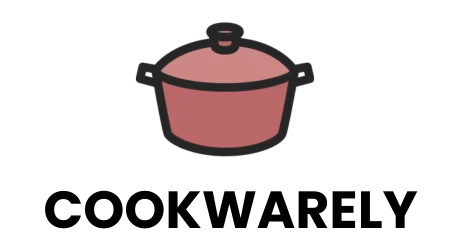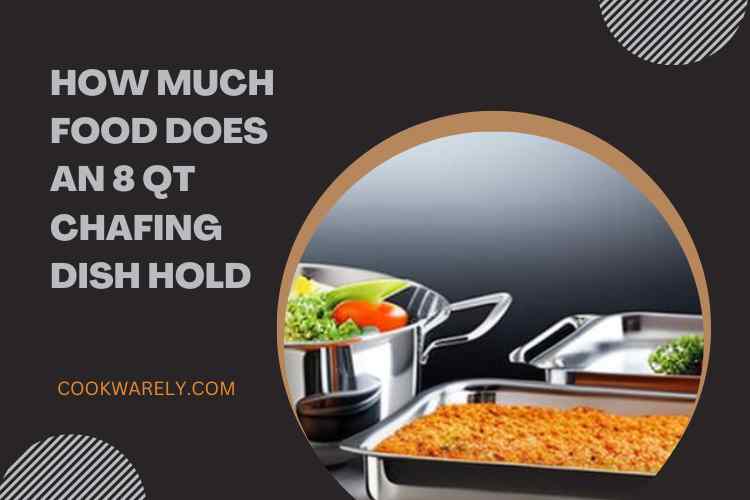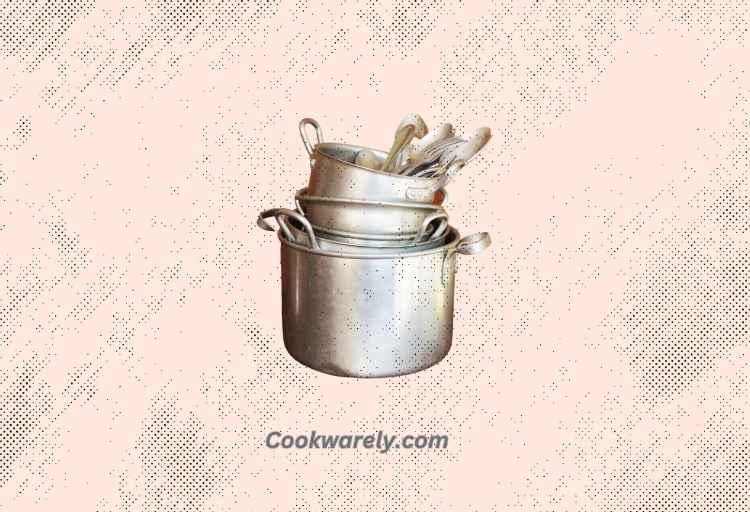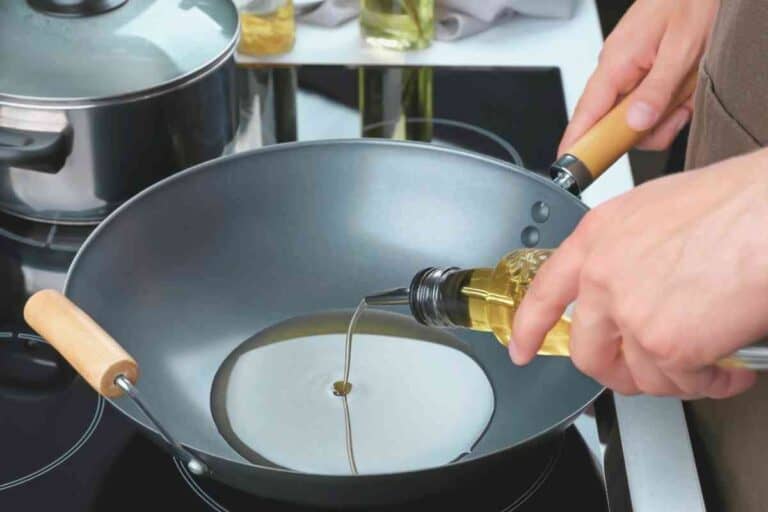Can You Use Aluminum Pans In Dishwasher? No!
Aluminum cookware is a kitchen staple known for its excellent heat conductivity and lightweight design. However, to keep your aluminum pots and pans in tip-top shape, it’s crucial to understand how to care for them properly.
Using aluminum pans in the dishwasher is not recommended. The combination of hot water, high heat, and dishwasher detergent can lead to fading, oxidation, and damage. Prolonged soaking in soapy water should also be avoided.
To maintain aluminum pans, clean them with cream of tartar and water, and always opt for handwashing to preserve their quality and prevent potential scratching or nicks caused by dishwasher jets.
Safety Considerations: Using Aluminum Pans In Dishwasher
| Safety Measure | Aluminum Pans |
|---|---|
| Check for Dishwasher Labels | Look for “dishwasher-safe” labels; if not found, handwash. |
| Use Gentle Detergent | Even when dishwasher-safe, use a mild detergent to prevent damage. |
| Separate from Metals | Avoid contact with other metals in the dishwasher to prevent corrosion. |
| Monitor for Wear | Regularly inspect for signs of wear; switch to handwashing if needed. |
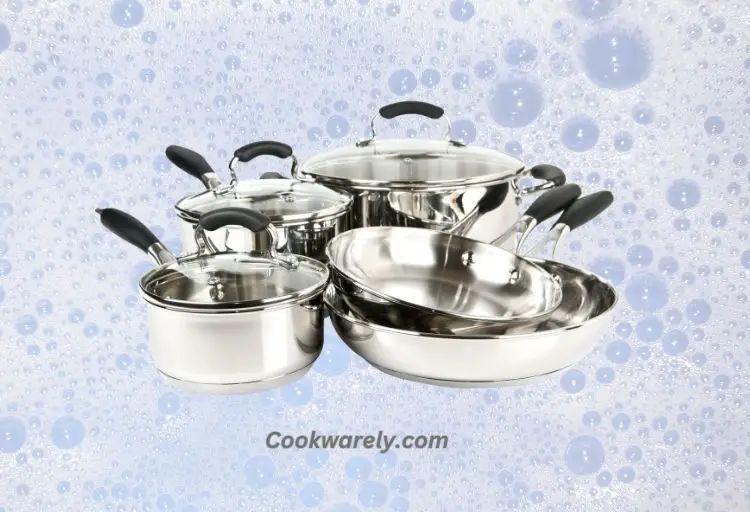
Key Takeaways
- Avoid Dishwashers for Aluminum: Don’t use dishwashers for aluminum pans to prevent fading and damage.
- Limit Soaking: Avoid extended soaking in soapy water, as it can harm aluminum.
- Consider Cream of Tartar: For cleaning, handwash and use cream of tartar to maintain aluminum cookware.
Why You Should Avoid Dishwashing Aluminum Cookware?
When it comes to caring for your aluminum cookware, the first rule of thumb is to avoid tossing it into the dishwasher. Here’s why:
- Preventing Fading and Oxidation: The combination of hot water and harsh dishwasher detergents can lead to fading and oxidation of your aluminum pots and pans.
- Avoiding Damage: Dishwashers can expose aluminum cookware to high heat and harsh chemicals, which can result in irreversible damage over time.
- Preserving Appearance: Handwashing helps preserve the appearance of your cookware, keeping it looking shiny and new.
Not All Aluminum Cookware Is Dishwasher-safe
When it comes to aluminum cookware, one must recognize that there is a distinction between pieces designed for dishwasher use and those that are not.
This differentiation is primarily based on the cookware’s ability to withstand the conditions within a dishwasher. Here’s a breakdown of what you need to understand:
1. Dishwasher-Safe Labels Matter:
- Variability in Aluminum Cookware: Aluminum cookware comes in various forms and compositions. Some may have protective coatings or designs that make them suitable for use in a dishwasher, while others lack these features.
- Importance of Labels: To determine whether your aluminum cookware can safely go into the dishwasher, you should pay close attention to labels or markings provided by the manufacturer. These labels serve as crucial indicators of the cookware’s compatibility with dishwasher use.
2. Look for Labels:
- Manufacturer Guidance: Manufacturers often provide explicit information regarding the dishwasher compatibility of their products. This guidance is typically found on the packaging or in the product’s user manual.
- “Dishwasher-Safe” Designation: If your aluminum cookware is labeled as “dishwasher-safe,” it means that the manufacturer has tested and confirmed that the cookware can withstand the conditions of a dishwasher without suffering damage or degradation.
- “Not Dishwasher-Safe” Warning: Conversely, some aluminum cookware may be labeled with a warning that explicitly states it is not suitable for dishwasher use. This warning is a clear indication that the cookware should be handwashed to avoid potential issues.
3. Handwashing as the Alternative:
- When Not Labeled as Dishwasher-Safe: If your aluminum cookware lacks a dishwasher-safe label or has a warning against dishwasher use, it’s essential to opt for handwashing.
- The Handwashing Advantage: Handwashing provides a more controlled and gentle cleaning process, which is particularly important for aluminum cookware that may not have the protective measures necessary to withstand the dishwasher’s harsh environment.
- Preserving the Cookware: Handwashing not only ensures the cleanliness of your cookware but also helps preserve its appearance and functionality over time, preventing potential issues like fading, oxidation, or damage that can occur in a dishwasher.
Special Considerations for Anodized and Cast Aluminum
Anodized aluminum and cast aluminum pans, known for their popularity in kitchens, possess delicate finishes that demand specific precautions.
These finishes enhance their appearance and cooking performance but also make them vulnerable to damage. To maintain their quality, it is crucial to avoid subjecting these pans to dishwasher use, as the dishwasher’s harsh environment can easily compromise their delicate finish.
Handwashing is the recommended method to ensure the longevity of anodized and cast aluminum cookware, preserving both their aesthetic appeal and cooking capabilities.
This extra care is necessary to fully enjoy the benefits of these specialized pans in your kitchen while safeguarding them from potential harm caused by dishwashers.
What Is the Right Way to Clean Aluminum Cookware?
Now that you know why it’s important to handwash your aluminum cookware let’s discuss the proper techniques for doing so:
- Mild Dish Detergent: Use a mild dish detergent to clean your aluminum cookware. This helps remove grease and food residues without harming the metal.
- Warm Water: Warm water is your ally in breaking down stubborn stains and residues.
- Avoid Abrasives: Stay away from abrasive pads and scrapers that can damage the metal or non-stick coatings.
How To Tackle Stubborn Stains?
Even with proper care, stains can sometimes be a challenge to remove. Here’s how to tackle stubborn stains on your aluminum cookware:
- Scrape-Off Food Residue: Start by scraping off any stuck-on food residue using a wooden or plastic utensil.
- Soak in Hot Water: Soak the pan in hot water for a while. This will help loosen stubborn stains and make them easier to remove.
- Use Warm Soapy Water and a Sponge: After soaking, gently scrub the stained areas with warm, soapy water and a sponge. This should effectively remove most stains.
How To Deal with Dishwasher-Induced Cloudiness?
Cloudy Finishes: If your aluminum cookware has been exposed to the dishwasher and developed a cloudy finish, don’t worry; all hope is not lost. Here’s what you can do:
- Vinegar Soak: Fill the cookware with a mixture of equal parts water and vinegar. Let it soak for a few hours or overnight. This can help dissolve the cloudy residue.
- Scrub Gently: After soaking, scrub the cookware gently with a sponge or soft cloth to remove the cloudy film. Avoid abrasive materials, as they can scratch the surface.
The Long-Term Benefits of Proper Care
Properly caring for your aluminum cookware has numerous long-term benefits:
- Extended Lifespan: By avoiding the dishwasher and using gentle cleaning methods, you can significantly extend the lifespan of your cookware.
- Maintained Appearance: Your aluminum cookware will remain shiny and visually appealing.
- Consistent Performance: Aluminum’s excellent heat conductivity will continue to serve you well, ensuring your meals cook evenly.
Conclusion
Aluminum cookware is a valuable addition to any kitchen. To ensure it serves you well for years to come, it’s essential to treat it with care.
Avoid the dishwasher, use mild detergents, and employ gentle cleaning techniques to preserve its appearance and functionality.
By following these guidelines, you’ll be able to enjoy the benefits of aluminum cookware in your kitchen for many delightful meals to come.
Frequently Asked Questions (FAQs)
Can I Use Aluminum Cookware with Induction Stovetops?
Some aluminum cookware is compatible with induction stovetops, but not all. Look for specific induction-ready labels on the cookware or consult the manufacturer’s instructions.
Are There Any Health Concerns Associated with Using Aluminum Cookware?
Aluminum cookware is generally safe to use. However, if you have concerns about aluminum leaching into your food, you can opt for anodized aluminum cookware, which has a protective layer that prevents contact between food and the aluminum surface.
Can I Use Aluminum Cookware in the Oven?
Yes, many aluminum pots and pans are oven-safe. Check the manufacturer’s instructions for the maximum oven temperature your cookware can handle.
How Often Should I Deep Clean My Aluminum Cookware?
It’s a good practice to deep clean your aluminum cookware periodically, especially if you notice cloudiness developing. Depending on your usage, this might be needed every few months.
Can I Use Steel Wool to Clean Stubborn Stains?
It’s best to avoid steel wool as it can be too abrasive and potentially damage the cookware’s surface. Stick to non-abrasive scrubbers, sponges, or brushes.
